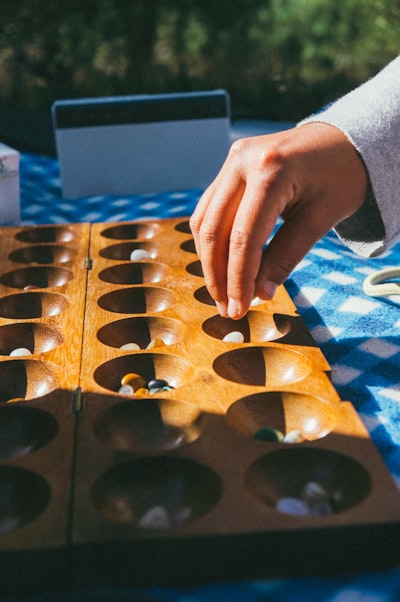- Dreaming of a living person dying is a common and unsettling dream that holds significant symbolism and interpretations across different cultures and religions.
- In Hinduism, death is viewed as a natural part of the cycle of life, and dreaming of a living person dying may symbolize the end of a cycle or stage in life and the opportunity for personal transformation.
- It is crucial to understand the emotional and psychological aspects of these dreams, acknowledge the emotions they evoke, practice self-care and mindfulness, and seek support if necessary.
- Unsettling dreams can reflect emotional detachment, and it is essential to identify the underlying emotions, address any unresolved issues, and work on rebuilding emotional connections.
Dreams can be powerful and intriguing, offering glimpses into our innermost thoughts and emotions. One of the most unsettling dreams that many people experience is dreaming about someone dying who is still alive. In Hinduism, where the cycle of life, death, and rebirth is deeply ingrained, these dreams hold a significant spiritual and psychological meaning.
Interpretation of Dreaming About Someone Dying Who Is Still Alive
1. Significance of Death in Hinduism
In Hinduism, death is viewed as a natural part of the cycle of life. It is believed that death is not the end, but rather a transition from one life to another. This concept of reincarnation is rooted in the belief that the soul is eternal and continues its journey in different forms. Therefore, dreaming about someone dying who is still alive can be seen as a reflection of this eternal cycle.
2. Meanings of Dreaming About Known and Unknown People Dying
Dreaming about the death of someone you know can often symbolize a change or ending in your relationship with that person. It may indicate a need for emotional distance or a desire to reconnect on a deeper level. The dream could also be a manifestation of unresolved issues or unspoken emotions between you and that person.
On the other hand, dreaming about the death of an unknown person may indicate a fear of loss or a sense of helplessness in a particular situation. It could represent the uncertainty of how to act or the need to let go of control. These dreams may also signify the death of an old way of thinking or the beginning of a new perspective.
3. How This Dream Could Indicate Significant Life Transformations
Dreams about someone dying who is still alive can often signify significant life transformations. These dreams may serve as a reminder to embrace change and let go of old patterns or relationships that no longer serve you. They can also be a call to explore new opportunities or focus on personal growth.
In Hinduism, death is seen as an opportunity for spiritual growth and renewal. Dreaming about someone dying can symbolize the release of negative karma and the beginning of a new phase in your life. It may encourage you to reflect on your actions, emotions, and relationships, and make necessary changes for your spiritual well-being.
4. How to Interpret and Understand These Dreams
When interpreting dreams about someone dying who is still alive, it is essential to consider your own personal experiences and emotions. Reflect on the feelings and emotions you experienced during the dream and what they may represent in your waking life. Consider any recent events or changes that could have triggered the dream and how they relate to your current circumstances.
Keeping a dream journal can be helpful in understanding recurring patterns or symbols in your dreams. Write down any significant details, such as the person involved, the circumstances surrounding their death, and your emotions during the dream. This practice can help you uncover deeper meanings and gain insights into your subconscious thoughts and desires.
It is important to remember that dreams are not literal predictions of the future, but rather reflections of your thoughts, emotions, and experiences. Use your dreams as a tool for self-reflection and personal growth. If you find these dreams recurring or causing distress, consider discussing them with a trusted confidant or seeking guidance from a professional dream interpreter or therapist.
Common Dream Scenarios and Their Meanings

Dreams have long fascinated and intrigued us, often leaving us with lingering questions about their meaning and significance. One common dream scenario that can be particularly distressing is dreaming of a living person dying. In Hinduism, these dreams hold various interpretations and can offer insights into our emotions and subconscious thoughts. Let’s explore some common dream scenarios and their meanings:
1. Dreams of a Loved One Dying
When we dream of a loved one dying, it can evoke a range of emotions from fear to sadness. However, in Hinduism, this dream does not necessarily indicate a literal death. Instead, it often signifies a change or ending in the relationship or the dynamics between you and that person. It may be a reflection of your own feelings about the relationship or a sign that the relationship is evolving. Take this dream as an opportunity to reflect on the state of the relationship and consider if any changes need to be made.
2. Dreams of Dying at the Hands of a Stranger
Dreams of dying at the hands of a stranger can be particularly unsettling. These dreams often represent a sense of helplessness and fear of the unknown. They may indicate that you are unsure of how to navigate a certain situation or feel that you have lost control in some aspect of your life. It’s important to recognize these feelings and explore ways to regain a sense of control and empowerment in your waking life.
3. Implications of These Dream Scenarios
The dream scenarios mentioned above hold various implications in Hinduism. Here are some key takeaways:
- Change and Endings
Dreaming of a living person dying often symbolizes changes or endings in our lives and relationships. It is a reminder that nothing in life remains stagnant, and we must embrace the ebb and flow of existence. - Emotional Processing
Dreams provide a safe space to process our emotions and fears. Dreaming of a loved one dying allows us to confront our fears of loss and abandonment, facilitating emotional growth and self-awareness. - Reflecting on Relationships
These dreams offer an opportunity to introspect and evaluate our relationships. Consider your feelings about the person in the dream and the dynamics of your relationship. Are there unresolved issues or changes you need to address? - Need for Control
Dreams of dying at the hands of a stranger may indicate a desire for control in your waking life. Explore ways to regain a sense of control and assertiveness, ensuring you are actively shaping your own path. - Navigating Transitions
Dreams of dying can also serve as guidance during times of transition. They remind us that change is a natural part of life and offer insights into how we can navigate these transitions with grace and acceptance.
Dreams are subjective experiences that vary from person to person. The interpretation of these dream scenarios should be based on your unique circumstances and emotions. Take the time to reflect on the underlying messages of your dreams and consider how they can inform your waking life.
Symbolism and Cultural Interpretations

Dreams have long fascinated and intrigued humans, serving as a window into our subconscious mind. One common and unsettling dream is that of a living person dying. This dream holds significant symbolism and interpretations across different cultures and religions. In this article, we will explore the symbolic meanings and cultural interpretations of dreaming about a living person dying, with a particular focus on the role of Hinduism in interpreting such dreams.
1. Use of Symbols in Dreams and Their Interpretations
Dreams often utilize symbols to convey messages from our subconscious mind. When we dream of a living person dying, the person and the act of death themselves serve as powerful symbols with deep meanings. The interpretation of these symbols varies depending on the cultural and religious context.
In Hinduism, death is viewed as a natural part of the cycle of life and is seen as an opportunity for spiritual growth and renewal. Dreaming of a living person dying in Hinduism may symbolize the end of a cycle or stage in life, the passing of an era, or the beginning of a new way of thinking or being. It can also represent the release of negative karma and the opportunity for personal transformation.
2. Comparisons of Dream Interpretations Across Different Cultures and Religions
Dream interpretations vary across different cultures and religions, each offering unique insights and perspectives. While Hinduism sees death as a part of the cycle of life, other cultures and religions may view it differently.
In Christianity, dreaming of a living person dying can signify a message from God. It may represent a need for personal growth, acknowledging unresolved issues, or taking action in one’s faith journey. Christianity places emphasis on spiritual growth, personal transformation, and acts of forgiveness and reconciliation.
In Islam, dreams are seen as a way to connect spiritually with God and gain insight into one’s thoughts and feelings. Dreaming about a living person dying can indicate spiritual growth, wisdom, or new beginnings.
It is important to note that dream interpretations within a specific culture or religion can also vary among individuals. Personal beliefs, experiences, and emotions can all influence the interpretation of a dream.
3. The Role of Hinduism in Interpreting Dreams
Hinduism places significant importance on dreams and their interpretations. Dreams are seen as a means of communication between the conscious and subconscious mind, offering guidance and insights into one’s life.
In Hinduism, dreaming of a living person dying can be seen as a sign of transformation and the need for personal growth. It may indicate the end of a particular phase in life and the opportunity for renewal. Hinduism teaches that death is not to be feared but embraced as a part of the spiritual journey.
Dreams in Hinduism are often considered a reflection of one’s thoughts, emotions, and karmic experiences. They are seen as a way to gain self-awareness, address unresolved issues, and learn important life lessons. Hinduism encourages individuals to reflect on their dreams, seek guidance from spiritual leaders, and apply the insights gained to their waking life.
Emotional and Psychological Analysis of Dreams

Dreaming of a living person dying can be a deeply unsettling and emotionally charged experience. It is important to understand the emotional and psychological aspects of these dreams in order to navigate through the feelings they evoke. In this section, we will explore some key points to consider when analyzing and coping with such dreams.
1. Emotional Detachment Represented by Dreams
Dreams often reflect our subconscious thoughts and emotions, and dreaming of a living person dying can be indicative of emotional detachment. It may suggest that we have become emotionally distant from the person in our waking life. These dreams can serve as a wakeup call to reevaluate our current relationships and the level of connection we have with others.
It is essential to identify the underlying emotions that these dreams bring up. Are we feeling disconnected, distant, or detached from the person in our dream? By acknowledging these emotions, we can begin to address any unresolved issues or work on rebuilding the emotional connection with the person in question.
2. How to Deal with Unsettling Dreams
Unsettling dreams, such as dreaming of a living person dying, can leave us feeling anxious and disturbed upon waking up. It is crucial to find healthy ways to cope with these unsettling emotions.
- Acknowledge and Validate – Start by acknowledging the emotions that the dream evokes. Validate your feelings and remind yourself that dreams are a reflection of your subconscious thoughts and emotions.
- Journaling – Consider keeping a dream journal to record and analyze your dreams. Writing down the details of the dream can help in identifying patterns, recurring themes, and gaining a deeper understanding of your subconscious mind.
- Self-Reflection – Take the time to reflect on the symbols, emotions, and themes present in your dream. Ask yourself what the dream may be trying to convey and how it relates to your current thoughts and experiences.
- Seeking Support – If the unsettling dreams persist or significantly impact your well-being, it may be beneficial to seek support from a trusted friend, family member, or mental health professional. They can provide guidance, validation, and help you navigate through the emotional aspects of the dream.
3. The Importance of Self-Care and Mindfulness in Handling Dreams
Dreams have the power to evoke strong emotions and have a lasting impact on our overall well-being. It is crucial to prioritize self-care and mindfulness to help process and manage these dreams effectively.
- Self-Care Practices – Engaging in self-care activities can help ground and center yourself. Take time for activities that bring you joy, relaxation, and emotional well-being. This can include exercise, meditation, listening to calming music, or spending time in nature.
- Mindfulness – Practice being present and non-judgmental when reflecting on your dreams. Mindfulness techniques, such as deep breathing or guided visualization, can help calm the mind and alleviate any anxiety or stress induced by unsettling dreams.
- Maintaining a Healthy Sleep Routine – Establishing a regular sleep routine can promote restful sleep and minimize the frequency of unsettling dreams. Ensure that you create a comfortable sleep environment and prioritize a consistent bedtime routine to support a good night’s sleep.
- Positive Affirmations – Use positive affirmations to counter any negative emotions or thoughts arising from unsettling dreams. Repeat affirmations that promote self-love, security, and emotional well-being. This can help reframe your mindset and promote a more positive outlook.
Remember that dreams are complex and multifaceted, and their meanings vary based on your personal experiences and beliefs. In Hinduism, dreaming of a living person dying can serve as a reminder of the impermanence of life and the importance of living in the present moment. Take time to reflect on your dreams and their emotional impact on you. Remember to practice self-compassion and seek support from loved ones or a mental health professional if you need it. By embracing these dreams and understanding their symbolism, you can gain a deeper understanding of yourself and your place in the world.










Leave a Reply